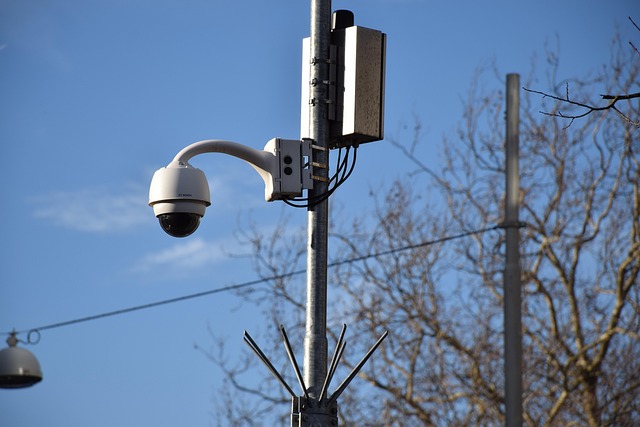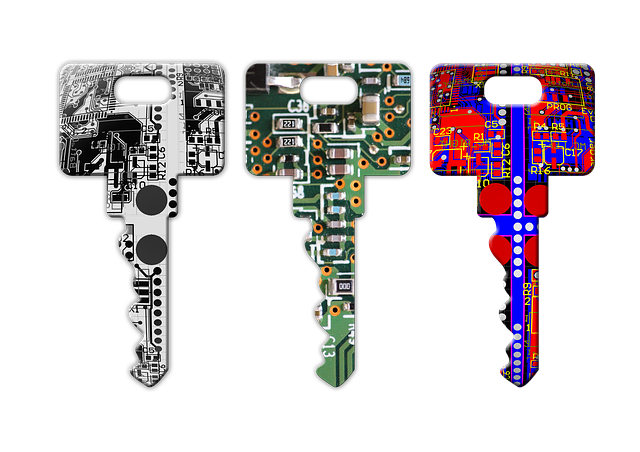Remote areas face unique challenges in energy provision and security due to distance from main grids and inconsistent internet access. Wireless solar security solutions offer a sustainable alternative, harnessing solar power for reliable electricity generation and efficient monitoring via solar-powered cameras and sensors. These flexible, easy-to-install systems provide swift deployment, consistent power supply, environmental friendliness, and real-time monitoring via smartphones, enhancing security for off-grid homes, farms, and other remote properties. Regular maintenance, facilitated by smart technology, ensures optimal performance and reliability for enhanced comfort and security.
Remote properties face unique challenges, from limited grid access to rugged terrain. Luckily, wireless solar security solutions offer an ideal answer, providing power, peace of mind, and independence. This article explores how these innovative systems combine the benefits of solar energy with advanced security features, offering a sustainable and reliable way to protect remote locations. Discover the key components, implementation tips, and maintenance considerations for harnessing the power of the sun to safeguard your remote property.
- Understanding the Challenges of Remote Properties
- The Benefits of Wireless Solar Security Solutions
- Components of a Solar-Powered Security System
- Implementation and Maintenance Tips for Remote Areas
Understanding the Challenges of Remote Properties

Remote properties often face unique challenges when it comes to energy provision and security. These areas are typically located far from main power grids, making traditional electricity delivery inefficient and costly. Additionally, they may experience inconsistent or limited internet connectivity, hindering access to remote monitoring and management tools for security systems. This is where wireless solar security solutions step in as a viable alternative.
By harnessing the power of the sun, these innovative systems offer a sustainable and independent energy source for remote locations. Solar panels can efficiently generate electricity, which is then stored in batteries, ensuring a reliable power supply regardless of grid availability or weather conditions. Moreover, wireless security cameras and sensors, powered by solar energy, can be strategically placed to monitor properties without the need for complex wiring or external power sources. This not only enhances security but also contributes to the overall sustainability and reduced environmental impact of remote living.
The Benefits of Wireless Solar Security Solutions

Wireless solar security solutions are transforming how remote properties protect themselves, offering a range of benefits that traditional wired systems can’t match. One of the key advantages is their flexibility and ease of installation. Without the need for complex wiring, these systems can be quickly deployed in even the most remote locations, making them ideal for off-grid homes and farms. This also means less disruption during setup and maintenance, as there are fewer physical connections to manage.
Moreover, wireless solar security solutions are reliable and durable, powered by renewable energy from the sun. This ensures a consistent and sustainable power supply, unaffected by power outages or grid disruptions. The environmental friendliness of these systems is another significant plus point, as they reduce carbon footprints and promote a greener lifestyle. Additionally, with advanced features like real-time monitoring and remote access through smartphones, homeowners can stay connected and secure from anywhere in the world.
Components of a Solar-Powered Security System

Remote properties often face unique challenges when it comes to security, especially in areas with limited or unreliable grid electricity. Wireless solar security solutions offer a reliable and sustainable answer. These systems harness the power of the sun through solar panels, which charge a rechargeable battery during daylight hours. This stored energy then powers various security components, ensuring round-the-clock protection.
A typical wireless solar security system comprises several key elements: solar panels, batteries, motion sensors, cameras, and alarm controllers. Motion sensors detect any movement in the defined area, triggering the camera to capture images or videos for surveillance purposes. The alarm controller uses these inputs to monitor potential intrusions and alert homeowners or authorities through a connected app or siren. These components work together seamlessly, providing an efficient, eco-friendly, and cost-effective security solution for remote locations.
Implementation and Maintenance Tips for Remote Areas

Implementing solar-powered systems in remote areas offers a sustainable and efficient solution for energy needs, especially when combined with wireless solar security solutions. When setting up these systems, it’s crucial to consider the unique challenges presented by the location, such as extreme weather conditions or terrain difficulty. Professional installation is often recommended to ensure optimal performance and safety, particularly for larger-scale systems. Regular maintenance is another key aspect, which can be facilitated through smart technology. Automated monitoring systems can detect issues early on, like power fluctuations or equipment malfunction, allowing for swift repairs.
For ongoing upkeep, a simple routine includes inspecting panels for debris or damage, cleaning them regularly to maximize sunlight absorption, and checking connections for any loose or corroded wires. It’s also essential to keep an eye out for signs of wildlife interaction, as animals can cause disruptions. With proper implementation and maintenance practices, remote properties can enjoy reliable solar energy, enhancing both comfort and security with these eco-friendly wireless solar security solutions.
Remote properties face unique challenges, but wireless solar security solutions offer an innovative and sustainable approach. By harnessing the power of the sun, these systems provide reliable, off-grid security, enhancing safety without the need for complex infrastructure. With proper implementation and maintenance, solar-powered security becomes a practical and eco-friendly choice for those seeking to protect their remote homes or businesses.
